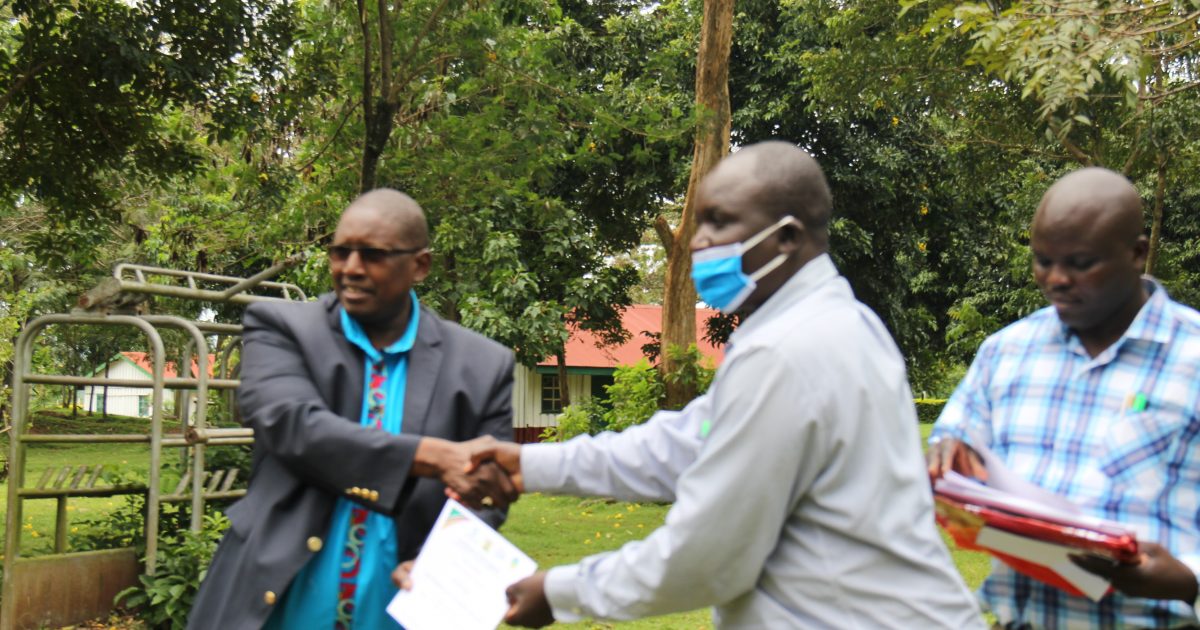Kenya Agricultural and Livestock Research Organization Director General Dr. Eliud Kireger has urged Agricultural Extension Officers to ensure that farmers adopt new technologies.
Speaking after the training of Extension officers from Elgeyo Marakwet and Siaya Counties on tomato value chain at KALRO Alupe on Friday, Kireger expressed concern that the Organization has developed so many technologies yet most of them have not been accessed by farmers.
“KALRO as the chef has the food but the extension officers are the waiters who should carry the food, but they are very few and sometimes they do not know what food has been cooked,” he said.
He argued that if farmers adopted the technologies that have been developed by the organization, they would be able to increase their productivity, income and improve their livelihoods.
The DG thanked the World Bank through the Kenya Climate Smart Agriculture Programme for supporting the training of the extension officers who will finally train farmers.
“The frustration we normally have in KALRO is that if you have developed a technology and it has not been taken out, a lot of people think you are doing nothing because nobody knows what you have done,” he said.
The official expressed confidence that the training gained by the officers would benefit farmers alongside being good ambassadors of KALRO.
“Please visit our website, it has many more technologies being updated regularly so that farmers can adopt best innovations and technological practices being used in other parts of the world,” he told the officers.
Dr. Kireger noted that a lot of new crop and livestock diseases were emerging due to climate change and the organization has to continuously carry out research to meet what the clients want.
He urged farmers to plant only tomato varieties recommended for their regions due to different climate, temperatures, types of soil, rainfall patterns and pests and diseases.
The official pointed out that a lot of tomatoes being consumed in the country were imported from Tanzania especially from Arusha.
Dr. Kireger attributed the low tomato production in the country to the high demands for crop husbandry and post-harvest challenges.
“When you have a lot of it and the market is not there, we have loses,’ he said adding that farmers were averse to risks.
He further said that 8 counties have chosen tomato as a priority crop namely Mandera, Garissa, Kajiado, Kirinyaga, Taita Taveta, Laikipia, Bungoma and Trans Nzoia hence they would have their extension officers trained on tomato value chain with a view to increase its productivity.
The programme targets to benefit about 521, 500 households of smallholder farmers, agro pastoralists and pastoralists directly.
At least 50 extension officers, service providers, lead farmers and agricultural value chain players from Elgeyo Marakwet and Siaya County participated in the six days’ training forum.
By Salome Alwanda




